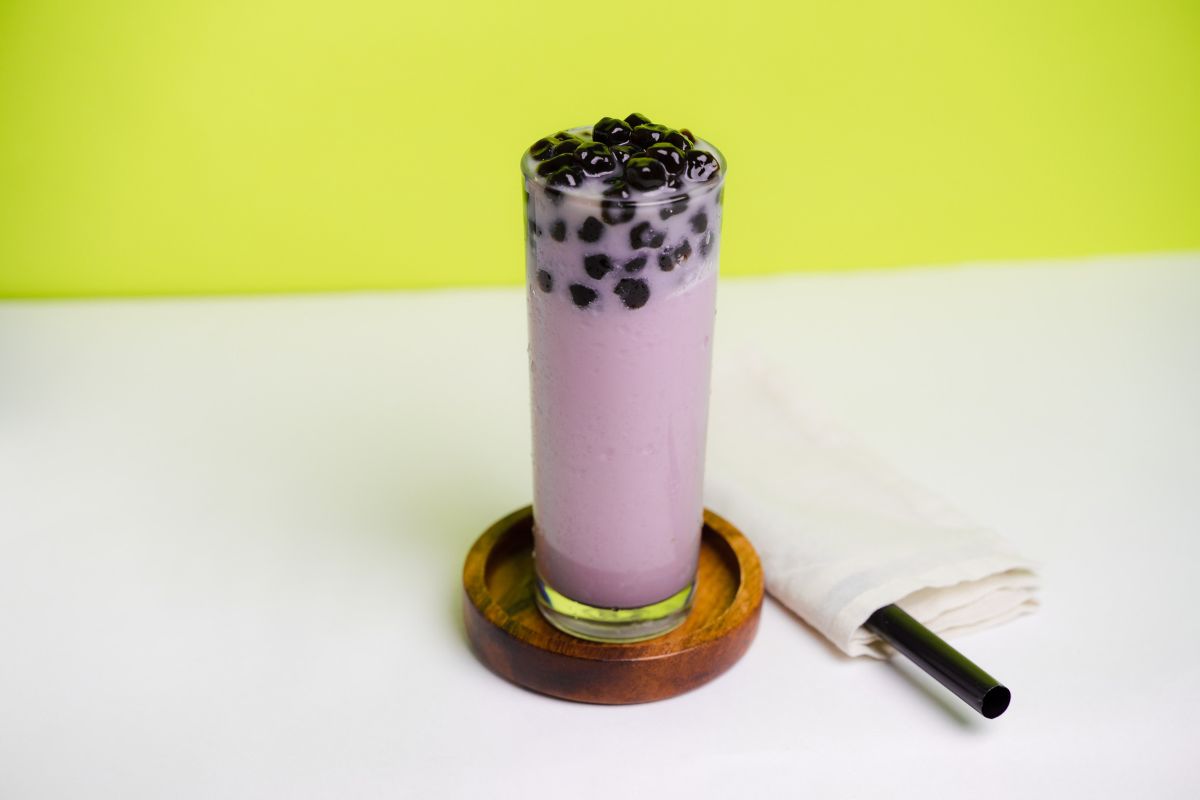Dairy milk is one of the most popular ingredients in the kitchen and has been for centuries. Whether you put a drop in your tea and coffee, make cookies with it, cereal, or more, it’s a staple ingredient used in baking and cooking.
You might think that dairy milk is absolutely fine to drink on a low-carb diet! It’s not like potatoes, pasta, or fries, right? Well, unfortunately, this is where a lot of keto dieters fall.

Dairy milk is not ketogenic and it will kick you out of ketosis. It contains a form of sugar that keto dieters need to avoid and this is called lactose.
This can affect blood sugar and can prevent ketosis when your drink large amounts.
This means those in the keto community are always on the hunt for the best milk alternatives and with so much milk out there for those allergic to lactose or have dietary requirements such as being vegan, this means there are now plenty of options to choose from.
In this article, we have carefully selected our favorites and the most common alternative for milk on the market which are low carb and will help you stay on track with your keto diet.
Two favorites are almond and coconut milk, but we promise there are plenty! So, let’s dive in!
Almond Milk
First on the list is the famous and very popular almond milk. It is one of the best alternatives on this list and is the most commonly used milk alternative to dairy in the plant-based and keto communities.
It has a creamy consistency and looks very white to tan. The taste is rich but nutty and you can even make it yourself at home.
All you need to do to make almond milk at home is leave whole almonds to soak in water from 8-48 hours and after soaking, they should be puffed up from having soaked in the water.
Then they are simply put in a blender with fresh water until all the almonds are grounded. You now have your almond milk.
To separate the ground almonds in the milk and make it as you buy it in the shop, you can use a strainer and a cheesecloth. The process is simple and fast and can save you money in the grocery store.
Almond milk has nutrients from the almonds and this means it has plenty of vitamin E, which is a great antioxidant.
Almond Milk Nutritional Information
In one cup or 255 grams of almond milk, you will find around 37 calories, 2.34 grams of fat, 0.97 grams of protein, 3.2 grams of total carbs, 0.48 grams of fiber, and only 2.72 grams of net carbs.
However, the nutritional information will depend on the brans and how much salt, water, and sweetener are in the brand. It will also vary depending on what additives are added.
Soy Milk
Soy milk or soya milk is plant-based milk and was once a byproduct of tofu. It has a slightly sweet taste but is mostly neutral and people like to combine it with both sweet and savory drinks as a result. It has a very smooth texture and is a pale white or tan.
Soy milk is made by soaking some soybeans in water, before grinding them in a blender with water. You need to ensure there are no chunks left in the water before boiling and straining it through gauze. This will make sure the soybeans are separated from the soy milk.
A lot of dairy milk alternative brands add in flavorings such as salt, sweeteners, vanilla or another type of additive to the milk to it has a specific taste. Soy milk has great national value and is very high in calcium. It also has plenty of potassium and vitamin B12.
Some people on strict ketogenic diets might not want to drink soy milk and might want to exclude soy products completely from their diet. This means it is not the most optimal keto option for a dairy milk alternative.
Soy Milk Nutritional Information
In one cup of soy milk or 244 grams, there are 105 calories, 3.6 grams of fat, 6.34 grams of protein, 12 grams of total carbs, 0.48 grams of fiber, and 11.52 grams of net carbs.
Coconut Milk
Another favorite on the milk alternative list for the plant-based and keto community is coconut milk. Coconut milk is a very popular milk alternative and has a sweet taste which is also creamy and tastes like coconut. It is white and the thickness will depend on fat content.
Coconut milk is often made by blending the coconut meat and water and waiting till all the coconut is blended. When making coconut milk, you can use a type of gauze and a sift and this will help you strain the milk so you are left with a finished product of rich and creamy coconut milk and separate coconut flour. People like to dry out and reuse coconut flour in recipes.
Coconut milk is very high in healthy fats, yet a lot of them are MCTs. This stands for (medium-chain triglycerides).
Coconut Milk Nutritional Information
In one cup or 244 grams of coconut milk, you will find around 76 calories, 5 grams of fat, 0.51 grams of protein, 7.12 grams of total carbs, no fiber, and just 7.12 grams of net carbs.
Macadamia Nut Milk
As the name suggests, macadamia nut milk is made from macadamia nuts. The milk has a fruity and pleasant taste and is very rich with a smooth texture. It is white or cream.
You can make your macadamia nut milk by soaking your macadamia nuts in water for up to around 48 hours and blending them with water. You would then also need to add a pinch of salt and often people like to add flavorings and seasonings such as sweeteners, cocoa powder, or vanilla.
The milk is very healthy, low in calories, but contains plenty of healthy fats.
Macadamia Nut Milk Nutritional Information
In one cup or around 250 ml of macadamia milk, you will find 55 calories, 5 grams of fat, 1 gram of protein, 1 gram of carbs, 0.5 grams of fiber, and only 0.5 grams of net carbs making it great for those on a keto diet.
Cashew Milk
For those cashew lovers out there, you’ll be pleased to know that there is milk just for you! Cashew milk is another popular plant milk and it’s tasty, creamy, and rich. You can replace normal milk with cashew milk in a lot of recipes and the creamy consistency and nutty taste make it great in pasta sauces. It is light cream.
Cashew milk is a combination of cashews and filtered water. The process is similar to making other plant-based milk and you soak the cashews overnight, before boiling and blending till smooth.
You can make cashew milk either strained or unstrained. Unstrained cashew milk contains creamy, blended cashews and this gives the milk its creamy texture.
The milk is packed with magnesium, calcium, and iron and is rich in vitamin A and D. Some brands also like to add additional nutrients or flavorings to cashew milk.
Cashew Milk Nutritional Information
In one cup or around 240 ml of cashew milk, there are 24 calories, 2 grams of fat, just 1 gram of protein and carbs, and only 1 gram of net carbs.
Pumpkin Seed Milk
Pumpkin seed milk is used very rarely as an alternative to dairy milk, however, it is very cheap and very easy to make. The process involved is similar to other dairy milk alternatives and it has a very nutty and creamy taste as well as consistency.
It is plant-based and completely ketogenic and to make it, you only need to soak some pumpkin seeds overnight. You then blend them with water and other seasonings before straining the mixture and separating the blended seeds from the pumpkin milk.
Pumpkin Seed Milk Nutritional Information
In one cup or 65 grams of pumpkin seeds, you will find 285 calories, 12.4 grams of fat, 12 grams of protein, 34.4 grams of carbs, 11.8 grams of fiber, and 22.6 grams of net carbs. However, you must keep in mind that the national value will decrease greatly when the seeds are turned into milk.
Brazil Nut Milk

Brazil nut milk is made from brazil nuts in a similar way other plant milk is made. It has a nutty and creamy texture and is tan in color.
If you want to make brazil nut milk, you should soak the nuts overnight and blend with water before straining with cheesecloth and separating the ground nuts from the milk. The milk is very rich in selenium and healthy fats.
Brazil Nuts Milk Nutritional Information
Although nutritional value will decrease in milk form, in 28g of nuts, you will find 187 calories, 19 grams of fat, 4.06 grams of protein, 3.33 grams of total carbs, 2.13 grams of fiber, and 1.2 grams of net carbs.
Pea Milk
Pea milk might sound a little odd as most people understand that peas are not a ketogenic food. However, the milk made from peas isn’t made using peas and is just the pea proteins that have been extracted from yellow peas.
These yellow peas are turned into flour and the protein from this flour is separated from the fiber and starch. You then blend the protein with water and add your seasoning such as salt, sunflower oil, or extra vitamins to boost national value.
The milk doesn’t taste like peas and is quite neutral. This is why some people add seasonings such as cocoa powder or vanilla extract. Pea milk is high in protein and rich in vitamin B12, calcium, and iron.
Pea Milk Nutritional Information
In one cup or 240ml of pea milk that is unsweetened, there are around 70 calories, 4.52 grams of fat, 8 grams of protein, and the best bit, no carbs or net carbs!
Flax Milk
Flax milk is made from flax seeds. The milk has a very rich and nutty flavor and a lot of people compare it to almond milk. The color of flax milk varies a lot and it can either be light or a dark tan color. This will depend on the type of flax seeds you’re using. The milk is simply an emulsion of filtered water and cold-pressed flaxseed oil.
If you want to make it at home, you should grind up some flax seeds but make sure they have been soaking in water overnight first. You then need to separate the gelatinous substance around the seeds from the flax seeds and then you blend the seeds with water.
Once blended, you can strain the mixture and this will separate the flaxseed meal from the flax milk. The milk has great nutritional value and is high in vitamin E and omega-3 fatty acids.
Flax Milk Nutritional Information
In one cup or 249ml of flax milk, there are 24 calories, 2.5 grams of fat, 1 gram of total carbs, and only 1 gram of net carbs and so will keep carbs low.
Pili Nut Milk
This type of non-dairy milk is rarely used and the nuts are not hugely popular. However, they are very low-carb and high in healthy fats. You can make pili milk by simply soaking them overnight.
Then you blend the soaked nuts up. You need to strain the milk and separate it with a cheesecloth. In the end, you find yourself with tasty and creamy milk that tastes almost like a blend of cashew and macadamia milk.
Pili Nut Milk Nutritional Information
In ¼ cup of pili nuts, although the nutritional value will be reduced when in milk form, you will find 210 calories, 24 grams of fat, 3 grams of protein, and 1 gram of total and net carbs.
Hemp Milk
Hemp milk is another popular plant-based milk and is a great alternative to use when trying to replace dairy. It’s also perfect for those on the keto diet.
You make it from hemp seeds, as the name suggests, and you end up with milk that has a texture that resembles cow’s milk. The taste is slightly nutty but also neutral and goes well with tea and coffee.
If you want to make hemp milk, you simply blend up soaked hemp seeds with water and seasonings such as sweetener or vanilla, and then you separate the seeds which have been ground up from the milk. To do this, use either a strainer or a cheesecloth.
Hemp milk is rich in iron, magnesium, and calcium and is great for the bones.
Hemp Milk Nutritional Information
In one cup of hemp milk or 240ml, you will find around 80 calories, 8 grams of fat, 2 grams of protein, 1 gram of carbs as well as only 1 gram of net carbs.
Final Thoughts
We hope you have enjoyed this article on low-carb and keto-friendly milk substitutes and have discovered some new ideas and inspiration for when you are dying for a milky coffee, but don’t want to be kicked out of ketosis!
- What Exactly Do Chickpeas Taste Like? Is There A Distinct Flavor? - September 30, 2023
- Top 11 Low Carb Options at Sonic Drive-In for Keto Diet - September 30, 2023
- What Should You Serve Alongside Potato Salad? 8 Incredible Side Dishes - September 30, 2023










